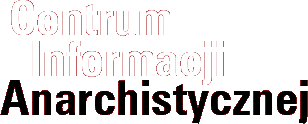Karadzić był pod ochroną CIA
Do 2000 roku amerykańska Central Intelligence Agency chroniła Radovana Karadzica. W czwartek Karadzić ujawnił kilka szczegółów o obietnicach nietykalności składanych przez amerykańskiego negocjatora Richarda Holbrooke'a. Amerykanie mieli zapewnić go, że do Hagi nigdy nie trafi. Ale były warunki. "Ja miałem wycofać się z życia publicznego, nawet z życia literackiego, a w zamian USA miały wypełnić swoje zobowiązania" - mówił Karadżić.
Historię tę potwierdza Aleksa Buha. Według Buhy, obietnica taka została złożona podczas spotkania w Belgradzie w nocy z 18 na 19 lipca 1996 roku. Uczestniczyli w nim również Slobodan Miloszević, wtedy prezydent Jugosławii, Milan Milutinović, wówczas jugosłowiański minister spraw zagranicznych i Momczilo Krajisnik, wysokiej rangi polityk Serbów bośniackich.
Wersja Karadzica także potwierdza innych polityków, m.in. Muhamed Sacirbey.






